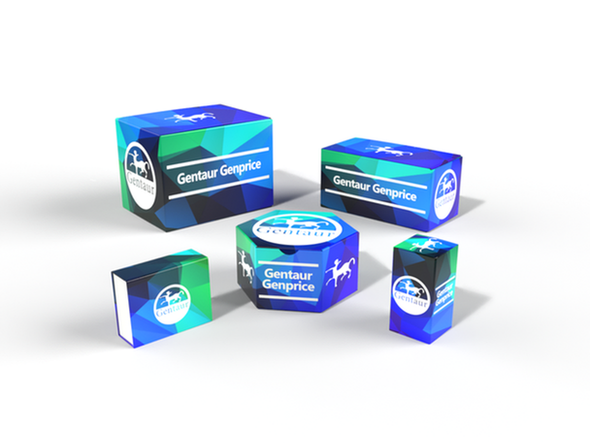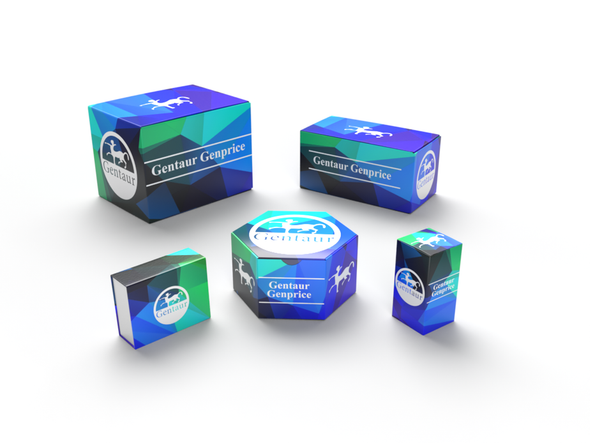740
Mouse Cyclin-D1 (CCND1) ELISA Kit | AE59135MO
- SKU:
- 740-AE59135MO
- Availability:
- Usually ships in 5 working days
Description
Mouse Cyclin-D1 (CCND1) ELISA Kit | AE59135MO | Gentaur UK, US & Europe Distribution
Species Reactivity: Mouse (Mus musculus)
Abbreviation: CCND1
Alternative Name: BCL1; D11S287E; PRAD1; U21B31; B-cell CLL/lymphoma 1; G1/S-Specific Cyclin-D1; Parathyroid Adenomatosis 1;
Application: ELISA
Range: 0.156-10 ng/mL
Sensitivity: 0.057 ng/mL
Intra-Assay: ≤5.9%
Inter-Assay: ≤8.3%
Recovery: 0, 97
Sample Type: Serum, Plasma, Other biological fluids
Detection Method: Sandwich
Analysis Method : Quantitive
Test Principale: This assay employs a two-site sandwich ELISA to quantitate CCND1 in samples. An antibody specific for CCND1 has been pre-coated onto a microplate. Standards and samples are pipetted into the wells and anyCCND1 present is bound by the immobilized antibody. After removing any unbound substances, a biotin-conjugated antibody specific for CCND1 is added to the wells. After washing, Streptavidin conjugated Horseradish Peroxidase (HRP) is added to the wells. Following a wash to remove any unbound avidin-enzyme reagent, a substrate solution is added to the wells and color develops in proportion to the amount of CCND1 bound in the initial step. The color development is stopped and the intensity of the color is measured.
Product Overview: Cyclin D1 belongs to the family of cyclin proteins which function as the regulatory subunits of cyclin/cyclin dependent kinase (Cdk) holoenzymes that regulate entry into and progression through the cell cycle. Cyclin D1 expression is induced upon stimulation by growth factors (e.g.EGF, IGF-I/II), amino acids, hormones, and oncogenes such as Ras, Src, ErbB2, and SV40 T antigen. Cdk4 and Cdk6 can partner with Cyclin D1 in early to mid-G1 phase to phosphorylate and inactivate the cell-cycle inhibitory function of the retinoblastoma protein (pRB) in cooperation with Cyclin E/Cdk2. Cyclin D1 is also known to modulate local chromatin structure and transcription of genes involved in proliferation and differentiation through CDK-independent association with histone acetylases (e.g. CBP, P/CAF) and deacetylases.
Stability: The stability of ELISA kit is determined by the loss rate of activity. The loss rate of this kit is less than 5% within the expiration date under appropriate storage condition. The loss rate was determined by accelerated thermal degradation test. Keep the kit at 37°C for 4 and 7 days, and compare O.D.values of the kit kept at 37°C with that of at recommended temperature. (referring from China Biological Products Standard, which was calculated by the Arrhenius equation. For ELISA kit, 4 days storage at 37°C can be considered as 6 months at 2 - 8°C, which means 7 days at 37°C equaling 12 months at 2 - 8°C) .










